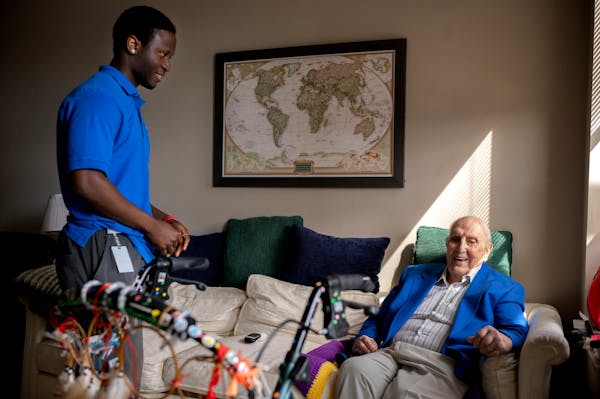Women in corsets and petticoats performing jiujitsu is a striking theatrical image, but only one of the highlights of Anne Bertram's "The Good Fight," currently running at Theatre Unbound. The play powerfully dramatizes a significant era for women: the suffrage movement in Britain in the early 20th century.
Unlike their American counterparts, the British suffragettes were willing to embrace violence, initially against property and eventually against people. Bertram creates a broad historical panoply, from the speeches and rallies, to the votes in Parliament, to the martyrdom of one of the women.
As the plays opens, the Women's Social and Political Union (WSPU), frustrated at their lack of success, have begun to condone vandalism against property, especially that of rich men. But as their members are arrested and violated in prison, they take up jiujitsu, particularly to prevent their leader, Mrs. Pankhurst, from being taken.
In a particularly vivid piece of writing, Bertram describes how the imprisoned women were force-fed by tubes pushed down their throats, giving it the intensity of describing rape.
The play has a feminist perspective (much good humor comes from parodies of stuffy male Parliamentarians, and the violence against the women by the police is horrific), but it never becomes polemical. Even when the women master martial arts, it doesn't turn into a superhero movie. The women are not always successful and are frequently beaten. But when they do succeed, they have the audience cheering.
This is a situation of great moral complexity. Once the loss of human life is condoned, where does that leave the movement? Particularly effective is a confrontation between Ellen Apel's Miss Kerr, a passionate pacifist, and Delta Rae Giordano's Mrs. Pankhurst, noble and dignified, but an advocate for violence. (It becomes all the more harrowing when Pankhurst is shown weak and emaciated after imprisonment). The play offers no easy resolution.
Bertram creates a vibrant community of individual women. And director Carolyn Levy elevates the cast to a diverse ensemble. Sadie Ward's set creates a strong environment for the show's rapid-fire scenes.
The play's only failing is its ending. It did not conclude as much as just stop. But that's a quibble in the face of such a thought-provoking and moving piece of historical drama.
William Randall Beard writes regularly about theater.
In heated western Minn. GOP congressional primary, outsiders challenging incumbent

Minnesota Sports Hall of Fame: A class-by-class list of all members

This retired journalist changed professional wrestling from Mankato

